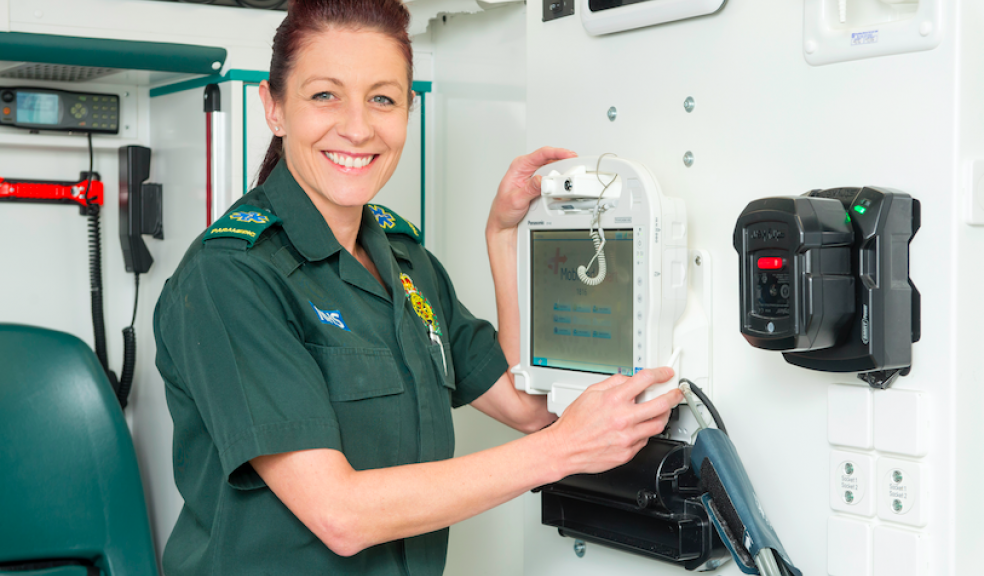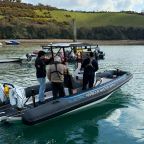
SW ambulance ranked top nationally for health research
South Western Ambulance Service NHS Foundation Trust is the top ambulance service in England for running the most clinical research studies to inform and improve patient care and treatments in the future.
One hundred per cent of all the NHS Trusts in England are offering the opportunity to participate in health research to patients according to a league table published today by the National Institute for Health Research (NIHR) Clinical Research Network (CRN).
The 2015/16 NIHR Research Activity League Table shows all NHS Trusts in England are delivering clinical research, providing thousands more patients access to better treatments and care.
For the second consecutive year running South Western Ambulance Service NHS Foundation Trust (SWASFT) is the most research active ambulance service in England out of 10 ambulance services.
SWASFT has achieved an unprecedented increase in the number of clinical research studies its frontline emergency crews are offering their patients. In 2015/16 SWASFT recruited 2,341 people to eight research studies compared with 386 participants enrolled to four studies in 2013/14.
South Western Ambulance Service NHS Foundation Trust Chief Executive Officer Ken Wenman said: “We are delighted to be the top ambulance service in England for running the most clinical research studies. We pride ourselves on being a forward thinking organisation, putting patient care and safety at the heart of everything we do.
“By participating in research initiatives we can directly help patients to receive even higher standards of clinical care. Our research and development team continue to work incredibly hard embedding a research culture across the organisation and has already made incredible progress. This is extremely challenging when taking our geography into account. The Trust’s workforce operates from over 100 sites across an area spanning one fifth of England.”
Mr Wenman added: “On behalf of the Trust, I would like to formally acknowledge the hard work of the research team and sincerely thank our clinical staff for their support and participating in these important studies.”
Plymouth-based paramedic Mary-Jean Tucker, who is one of over 500 paramedics SWASFT has trained to be research active, said: “My main priority is my patients and providing the best possible care for them. Taking part in clinical research not only provides my patients with additional treatment options but also gives me a better understanding to manage their condition. Clinical research is an important step in discovering new and more effective treatments, improving our knowledge and patient care now and in the future.”
Promoting, conducting and using clinical research to improve treatments for patients is part of the NHS England Constitution. The NIHR Research Activity League Table provides a picture of how much clinical research is happening, where, in what trusts and involving how many patients.
Commercial research activity is an added feature for the 2015/16 league table. Collaboration with industry is vital to enable the NHS to deliver first class clinical research, speeding up the development and availability of new treatments, therapies and diagnostics.
The data shows that a record number of commercial contract research studies have been delivered by NHS trusts in England over the last five years [650 in 2015/16].
NHS Kernow Clinical Commissioning Group area (Cornwall & Isles of Scilly) is ranked joint top CCG nationally for conducting 19 commercial clinical research studies.
Primary care research in GP practices and community healthcare settings is also highlighted as part of the report. Last year over 42% of GP practices in England recruited people to NIHR research studies.
Chief Executive Officer of the NIHR CRN, Dr Jonathan Sheffield said: “The NIHR League Table this year shows every NHS Trust in England is now research active. Evidence clearly shows research active trusts have better patient outcomes with 605,000 people across England participating in research in the NHS in the last year. The outlook is very encouraging. The league table results are a great achievement for all involved and highlight the growing commitment to research from the NHS and patients.”
Chris Whitty, Chief Scientific Adviser to the Department of Health, said: “The support and infrastructure provided by the National Institute for Health Research has helped increase year on year the number of research opportunities offered within the NHS. Commercial partnerships supported by the Clinical Research Network continue to play a key role in bringing world-class research studies to the UK, benefiting our health service and ensuring new treatments are available to patients as quickly as possible.”












